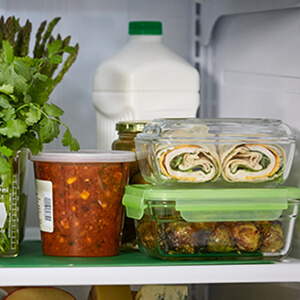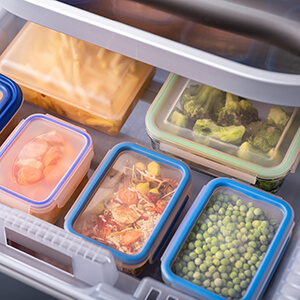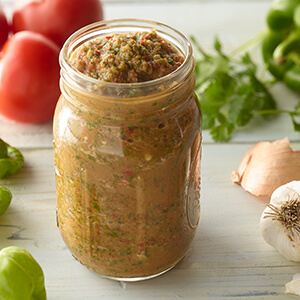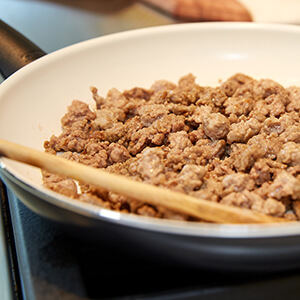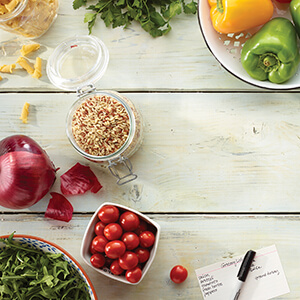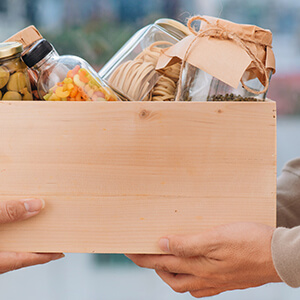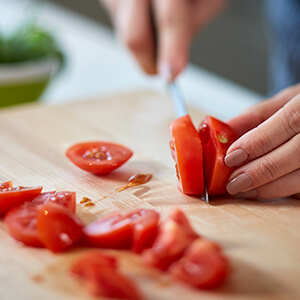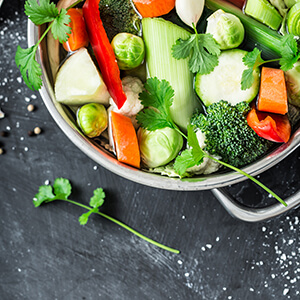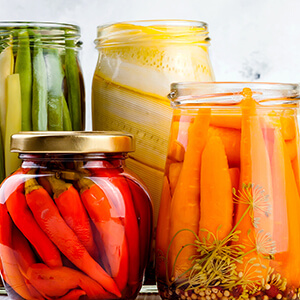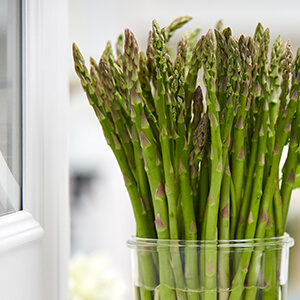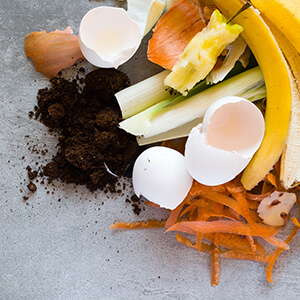At Hormel Foods, we understand that, and so we are committed to producing food responsibly for customers and consumers around the world. For instance, we have our eyes fixed on achieving zero food waste by 2030, in accordance with our new 20 By 30 Challenge corporate responsibility goal set. At the same time, we continually look for new methods and creative solutions to push the envelope farther. In that vein, we recently joined the 10x20x30 food waste initiative, an effort that has 10 food retailers engaging Hormel Foods and at least 19 other suppliers to reduce their food loss and waste by 50 percent by 2030.
The problem of food waste happens at every step in the supply chain, and that’s where our friend and partner Chef Grace Ramirez comes in. In addition to being a wizard in the kitchen, she is all about teaching us how to be more mindful of our global footprint and inspiring us to take action. So much so, she was invited to be part of the United Nations’ ActNow for Climate campaign to help educate and inspire us to live a sustainable existence.
Chef Grace joined us recently to share some ideas that everyone can embrace for a healthier planet and a better life for all.
-
![]()
Store Properly
Keep meat fresh longer by storing it in a refrigerator as soon as possible after opening, cooking, serving, etc. When your meal is over, for example, meat should be placed in a tightly closed container to keep out moisture and other contaminants. For a longer-term option, you can freeze your meat to preserve its freshness. Be sure to use a freezer-safe container.
-
![]()
Cook & Freeze
Save time and money by cooking food in bulk, portioning it and freezing it for future use. Label the contents and date them, making sure to put newer items toward the back of your freezer and older items near the front so you use them first. This tip allows you to take advantage of sales and in-season items.
-
![]()
Make a Sofrito
Turn your herbs into sofritos, and freeze in ice cube trays. Sauté leftover herbs and veggies in olive oil and keep in a jar that can be used as needed in your favorite recipes.
-
![]()
Cook It Now
Cooked meat lasts longer than raw – usually about a week. If you purchased too much beef, don’t let your steaks or roasts go bad. Simply cook them to extend shelf life by several days.
-
![]()
Plan Ahead
Plan ahead and make a list to avoid too much food and impulse-buying at the supermarket.
-
![]()
Donate Extras
Donate extra fresh produce and vegetables to local food banks. Some can be frozen for use in soups, stews, pies, etc.
-
![]()
Consider Portions
When preparing large meals, use an online portion calculator, such as one from Love Food Hate Waste. Afterward, take notes on how much food was actually consumed to better plan for next time.
-
![]()
Turn It Into Something New
Find new uses for food waste, like turning vegetable scraps and bones into soup stock. And love your leftovers by exploring new recipes.
-
![]()
Pickle Now and Enjoy Later
Pickling and fermentation are among the oldest methods of food preservation. A quick Google search will point you toward myriad how-to sites, including many targeted to beginners. One we especially like for information about food preservation (and how to make yummy pickles) is from the University of Minnesota.
-
![]()
Stay in Season
Opt for in-season food. Not only does it reduce your carbon footprint (think about food having to travel halfway across the world to get to you), it tastes better, so you’re less likely to waste it.
-
![]()
Compost
Compost is a fun and easy way to turn a lot of your kitchen scraps into a soil conditioner full of nutrients and beneficial organisms. Not a gardener? No worries. Give your black gold to a friend with a green thumb, or spread it around your shrubs and trees to feed them and the earthworms.

